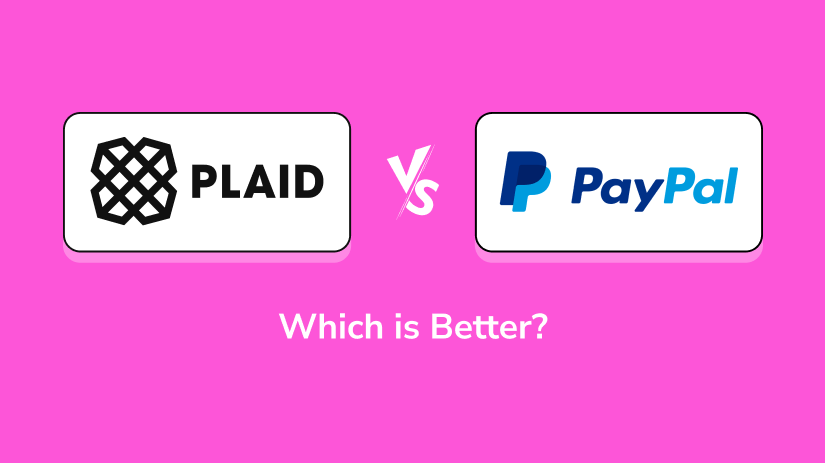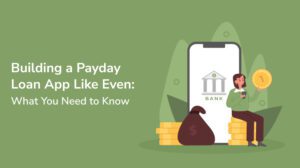In the ever-evolving landscape of financial technology (fintech), two names stand out prominently: Plaid and PayPal. Both offer essential services that facilitate financial transactions and empower businesses and individuals alike.
But when it comes to choosing between them, which is the better option? Let’s delve into the intricacies of each platform to find out.
What is Plaid?

Plaid, founded in 2013, quickly gained traction as a leading provider of financial data infrastructure.
Its platform enables applications to connect with users’ bank accounts, making it easier to manage finances, initiate payments, and streamline various financial processes.
Plaid’s API suite offers a range of services, including transaction categorization, identity verification, and income verification.
Benefits of Plaid

Comprehensive Financial Data
Plaid provides access to a wide array of financial data, empowering businesses to offer personalized financial solutions to their customers.
Security
Plaid prioritizes the security of financial data, implementing robust encryption and authentication measures to safeguard sensitive information.
Developer-Friendly
Plaid offers extensive documentation and developer tools, making it relatively straightforward to integrate its services into applications.
Connect with us for Fintech Development Needs
Trusted by companies like Plaid, Yodlee, Codat.
Plaid Integration Services
For businesses seeking to leverage Plaid’s capabilities, integration services are essential. Hiring Plaid developers with expertise in Plaid integration services can streamline the process, ensuring seamless connectivity with users’ bank accounts and optimal utilization of Plaid’s features.
To better understand PayPal vs Plaid, let’s explore the above same factors for PayPal payment gateway integration.
What is PayPal?

PayPal, founded in 1998, revolutionized online payments by providing a convenient and secure platform for transferring money electronically.
Over the years, it has expanded its services to include payment processing for businesses, peer-to-peer payments, and even cryptocurrency transactions.
Benefits of PayPal

Wide Acceptance
PayPal is widely accepted by merchants and individuals worldwide, making it a convenient payment option for customers.
User-Friendly
PayPal’s interface is intuitive and user-friendly, facilitating easy navigation and transactions for both businesses and consumers.
Versatility
PayPal offers a range of services beyond payment processing, including invoicing, subscription management, and even business loans.
Connect with us for Fintech Development Needs
Trusted by companies like Plaid, Yodlee, Codat.
PayPal Payment Gateway Integration Services
Businesses looking to incorporate PayPal into their operations can benefit from payment gateway integration services.
These services ensure seamless integration of PayPal’s payment processing capabilities into websites, mobile apps, and other platforms, enhancing the overall user experience.
Which is Better: Plaid vs PayPal?
The answer depends on the specific needs and objectives of your business. If you require access to comprehensive financial data and seek to offer personalized financial solutions to your customers, Plaid may be the better choice.
On the other hand, if you prioritize wide acceptance, user-friendliness, and versatility in payment processing, PayPal could be the preferred option.
Conclusion
In the realm of financial technology, both Plaid vs PayPal play crucial roles in facilitating seamless transactions and empowering businesses.
Whether you opt for Plaid integration services to harness the power of financial data or leverage PayPal’s widespread acceptance and versatility in payment processing, the key is to align your choice with your business objectives and customer needs.
Ultimately, both platforms have their strengths, and the decision between them should be based on careful consideration of your specific requirements.
Happy PayPal & Plaid Development!!
Connect with us for Fintech Development Needs
Trusted by companies like Plaid, Yodlee, Codat.
Frequently Asked Questions (FAQs)
1. What is Plaid?
Plaid is a financial data infrastructure platform that enables applications to connect with users' bank accounts securely. It provides access to comprehensive financial data and offers various services such as transaction categorization, identity verification, and income verification.
2. What is PayPal?
PayPal is an online payment platform that facilitates electronic money transfers between individuals and businesses. It offers a wide range of services, including payment processing, invoicing, subscription management, and business loans.
3. What are Plaid integration services?
Plaid integration services involve incorporating Plaid's capabilities into applications and systems. This includes connecting with users' bank accounts, retrieving financial data, and utilizing Plaid's features to enhance the functionality of financial applications.
4. How can I hire fintech developers for Plaid integration services?
You can hire fintech developers with expertise in Plaid integration through various channels, such as freelance platforms, specialized recruitment agencies, or directly from software development companies that specialize in financial technology.
5. What are payment gateway integration services?
Payment gateway integration services involve integrating payment processing capabilities, such as PayPal, into websites, mobile apps, and other platforms. This enables businesses to accept payments from customers securely and efficiently.
6. How can I hire Plaid developers?
You can hire Plaid developers with expertise in Plaid's API suite and integration services through similar channels as hiring fintech developers. Look for candidates with experience in financial technology and a strong understanding of Plaid's capabilities.





